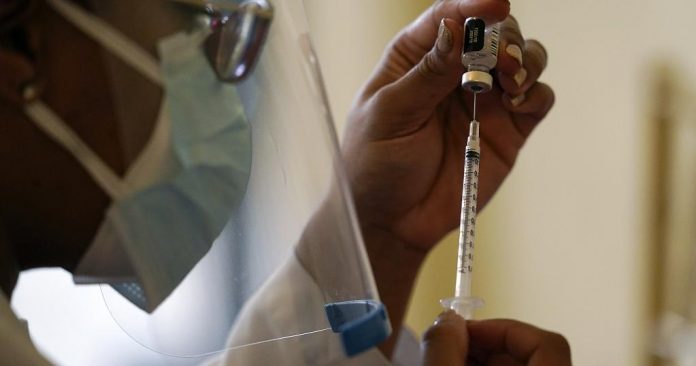Africa, like the rest of the world, remains between hopes and concerns over the coronavirus pandemic. As the disease gains ground, as variants threaten, vaccine distribution is organized.
According to the World Health Organization (WHO), the cumulative cases of Covid-19 in Africa exceed 3 million, and the number of daily cases “surpasses the peak of the first wave”, which dates from July 2020.
The continent is now facing new variants of the virus. “Strengthened public health measures are more than ever necessary to prevent an outbreak of infections that could drive health structures to the breaking point,” warns the WHO.
At the same time, the African Union announces that it has acquired 270 million doses of vaccines, of which 50 million will be distributed from April 2021. These doses are the result of the combined efforts of the AU, Afreximbank and from the World Bank. These efforts aim to complement, and not replace, the Covax initiative which intends to vaccinate at least 20% of the African population as soon as possible.
Some voices, especially from non-governmental organizations, have since December expressed doubts about the effectiveness of this mechanism; many fear that Western countries will take the lion’s share of vaccine distribution. “While the Covax initiative is essential for Africa, the African Union is concerned that the volumes, which will be available between February and June, will not exceed the needs for caregivers and therefore not be sufficient to contain the growing figures of the pandemic in Africa”, recognizes the AU.
Knowing that by itself, the target of 20% vaccinated in a population is insufficient to contain the epidemic. The vaccines purchased by the AU are those from Pfizer, Astra Zeneca and Johnson & Johnson. Afreximbank is responsible for offering payment guarantees to producers, while the World Bank is putting an additional $ 5 billion on the table to help African countries with their vaccination strategies.
“We have taken a further step to obtain vaccines independently using our own limited resources,” said Cyril Ramaphosa, current president of the AU. The South African president is leading discussions with other laboratories, and with other partners, to obtain more vaccines. The South African variant worries According to the WHO, 25,223 cases were reported every day between December 28, 2020 and January 10, 2021 in Africa, almost 39% more than the peak recorded in July 2020.
On its own, the variant detected in South Africa would explain the majority of new infections during the second wave. The mutations in the virus are not surprising, explains WHO; the South African variant is more contagious. However, “at present, there is no indication that the new variant increases the severity of the disease,” reassures the WHO. Even so, “a virus that can spread more easily will put more pressure on hospitals and healthcare workers who are in many cases already overwhelmed,” warns Matshidiso Moeti, WHO regional director. Who sees it as “a stark reminder that the virus is relentless, that it still represents a clear threat and that our fight is far from won”.
If the WHO questions a variant found in Nigeria, there is no indication, however, that the variant that is actively circulating in the United Kingdom has reached Africa. Insufficient progress in sequencing With support from WHO, African countries are stepping up genome sequencing efforts, which are essential to find and understand new variants as they appear and to help mitigate their impact.
WHO and the African Centers for Disease Control and Prevention’s Genome Sequencing Laboratory Network in Africa support governments through training and data analysis on genome sequencing, bioinformatics and technical expertise. Despite progress, the more than 5,000 sequences that have been taken so far in Africa represent only 2% of the global data.
“We call on all countries to step up testing and sequencing of the virus in order to quickly identify, track and tackle new variants of the coronavirus as they emerge,” said Matshidiso Moeti. “To defeat an agile, adaptable and relentless enemy, we must know and understand their every move, and redouble our efforts on what we know to be the best weapon against all variants of the virus.” And Dr Moeti reiterated the importance of “barrier gestures” to contain the pandemic.

